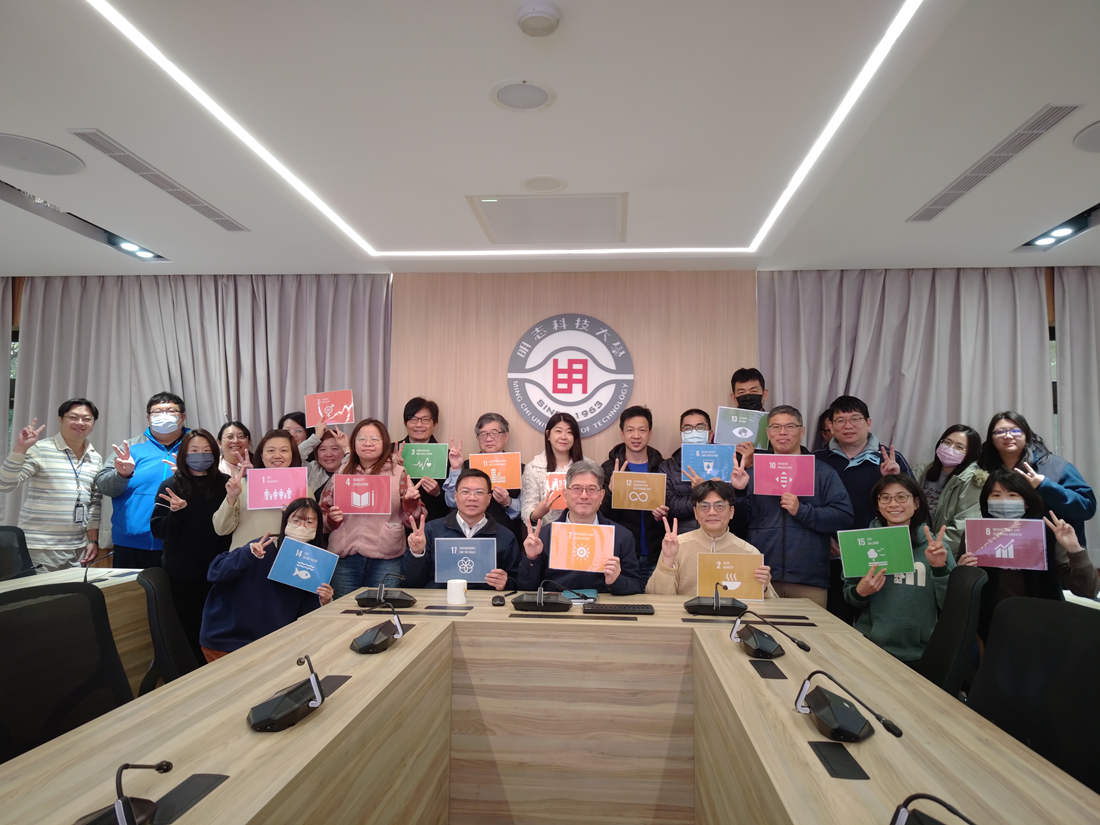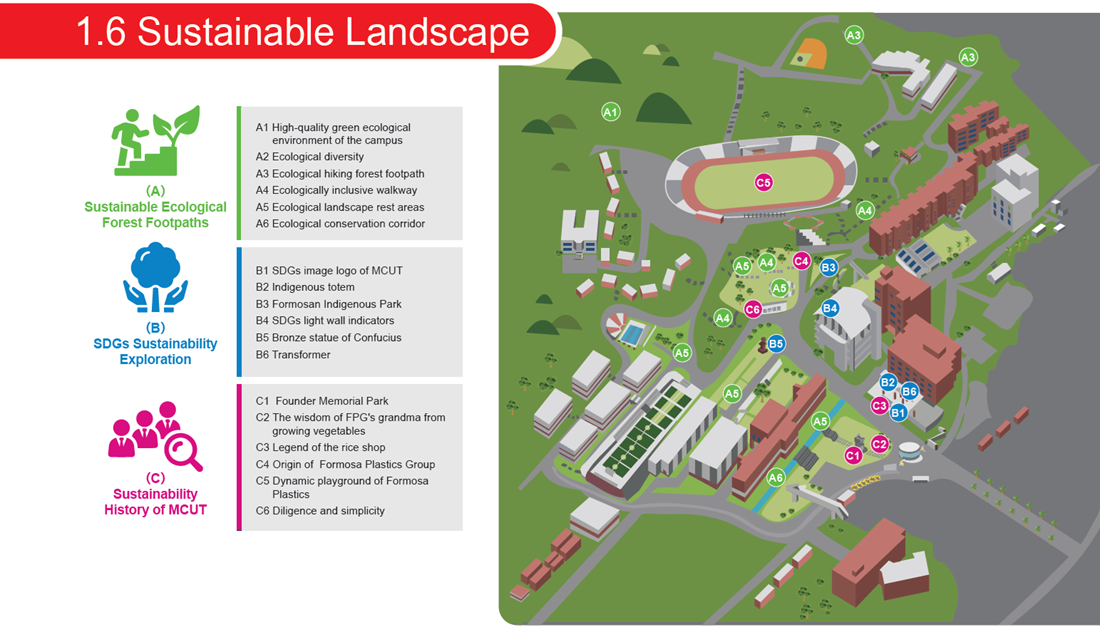【Award Information】Ming Chi University of Technology's Sustainability Strength Recognized Again Internationally, Ranked Among Top 100 in Two Categories of the 2025 THE University Impact Rankings
Ming Chi University of Technology (MCUT) has delivered an outstanding performance in the 2025 Times Higher Education (THE) Impact Rankings, earning top 100 global rankings in two Sustainable Development Goals (SDGs): SDG 11 – Sustainable Cities and Communities (ranked 99th) and SDG 17 – Partnerships for the Goals (ranked 96th). This achievement highlights the university’s strong capabilities and international impact in sustainable education, research, and practice.
This year’s rankings evaluated over 2,000 universities worldwide based on their contributions to the United Nations' Sustainable Development Goals (SDGs), through a comprehensive assessment of research, stewardship, outreach, and teaching. MCUT’s strong performance in two key SDG categories not only demonstrates its deep-rooted commitment to sustainability but also injects fresh momentum into Taiwan’s technical and vocational education system.
In terms of SDG 11 – Sustainable Cities and Communities, MCUT has long been engaged in the Sanxia region, promoting cultural preservation and local co-creation. Through design-thinking courses led by its Center for General Education, students are encouraged to conduct field research and engage in initiatives such as revitalizing the indigo dyeing industry and preserving historical sites—practicing concepts of cultural sustainability and community well-being. Campus planning is centered around friendliness and greenery, with people-oriented pathways, arts and cultural exhibition spaces, and community tour routes designed to create an open and shared sustainable campus that fosters positive interaction between faculty, students, and local residents. In research, MCUT employs the Social Return on Investment (SROI) assessment model, forming interdisciplinary teams and partnerships with industry, government, and academia to enhance the social and policy impact of its projects—bringing academic achievements closer to real-world needs and public welfare.
For SDG 17 – Partnerships for the Goals, MCUT actively expands its international collaborations and cross-sector partnerships. It has signed a tripartite industry-academia cooperation agreement with KAIST (Korea Advanced Institute of Science and Technology) and Formosa Advanced Technologies Corporation, aiming to jointly develop key technologies in renewable batteries, electric vehicles, and power management—contributing to Taiwan's energy transition and net-zero carbon goals. The university has also partnered with the Society of Wilderness to conduct waste investigations in the Tamsui River watershed, revealing high proportions of single-use plastic waste and providing scientific evidence to support government plastic-reduction policies. These efforts underscore MCUT’s proactive role in addressing social and environmental challenges.
Since 2021, MCUT has incorporated the core concepts of the SDGs into its curriculum, offering general education and internship courses on topics such as green energy, circular economy, and climate change. The university also promotes initiatives such as the English Storytelling Community Service Project and the development of teaching materials in the native languages of new immigrant communities, enhancing students’ multilingual literacy and community engagement, and expanding the positive educational impact on disadvantaged and grassroots communities.
President Liu Tsu-Hua of MCUT stated:
"Being ranked in the global top 100 for both SDG 11 and SDG 17 in the THE Impact Rankings is a strong recognition of our long-standing commitment to sustainable education, research, and global partnerships. We will continue to embrace the strategy of 'global vision, local action', integrating educational innovation with social engagement to respond actively to the United Nations’ Sustainable Development Goals. Through innovation in education and sustainable practice, we aim to cultivate internationally competitive talent and contribute to building a more livable, equitable, and resilient society—becoming a leading example of sustainable transformation in higher education across Asia."
Source: Sustainable Development Office





